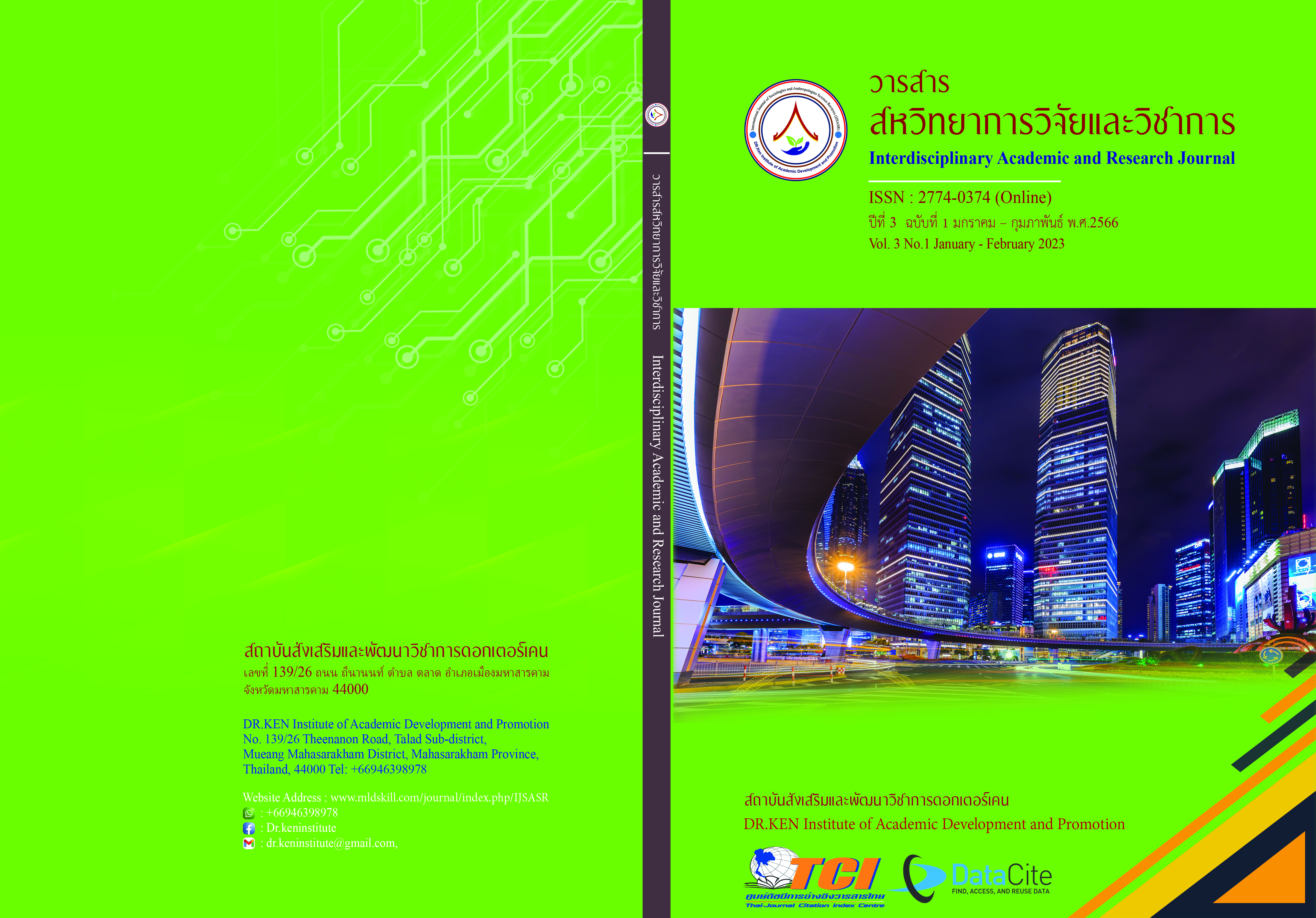MWK Model for Administration, Mathayom Wat Klang Kosum School under TFE (Teams For Education) Project, Mahasarakham Province
DOI:
https://doi.org/10.14456/iarj.2023.12Keywords:
Administration; , MWK Model for Administration; , TFE (Teams For Education) ProjectAbstract
The Ministry of Education has carried out educational reforms emphasizing raising the quality of learners to their full potential, improving the quality and standards of education at all levels according to the curriculum, and promoting the ability of technology as a learning tool, together with the determination of guideline indicators in the integrated plan for improving the quality of education and learning to have equal and thorough quality. This is to develop learners to be able to continuously direct learning that is suitable for themselves. When we develop human resources to their full potential, they will be able to achieve national development goals to be stable, prosperous, and sustainable. Therefore, this research aimed (1) to study the appropriateness of the MWK Model for the Administration of Mathayom Wat Klang Kosum School. And (2) to study the satisfaction of stakeholders with the results of the use of the MWK Model for Administration. The samples used are six school administrators, seven teachers, and eight members of the school board of trustees, all by purposive Random Sampling. The tools used include a questionnaire on the suitability of the MWK Model for Administration, Mathayom Wat Klang Kosum School, and an inquiry into the satisfaction of stakeholders on the results of the use of the MWK Model Management Model. The statistics used are frequency, percentage, average, and standard deviation. The duration of the research is the academic year 2019-2021. The results showed that (1) the MWK Model for Administration, Mathayom Wat Klang Kosum School Overall appropriateness is a high level of suitability in all aspects. And (2) the stakeholders are satisfied with the results of the implementation of the MWK Model for the Administration of Mathayom Wat Klang Kosum School, there is a high level of overall and individual satisfaction on all fronts.
References
สำนักงานคณะกรรมการการศึกษาเอกชน. (2554). พระราชบัญญัติโรงเรียนเอกชน พ.ศ.2550 (แก้ไขเพิ่มเติม ฉบับที่ 2) พ.ศ.2554. สำนักงานปลัดกระทรวงศึกษาธิการ กระทรวงศึกษาธิการ.
จันทรานี สงวนนาม. (2545). ทฤษฎีแนวปฏิบัติการบริหารสถานศึกษา. กรุงเทพฯ: บุคพอยท์.
จำรัส นองมาก. (2545). การประกันคุณภาพการศึกษาอย่างถูกต้องและมีความสุข. กรุงเทพฯ : ฟิสิกส์การพิมพ์.
เนตรพัณณา วิราช. (2556). ภาวะผู้นำและผู้นำเชิงกลยุทธ์. พิมพ์ครั้งที่ 8. กรุงเทพฯ : ทริปเปิ้ลกรุ๊ป จำกัด.
โรงเรียนมัธยมวัดกลางโกสุม. (2561). รายงานการประเมินตนเองของสถานศึกษา ปีการศึกษา 2560. มหาสารคาม.
Bandura, A. (1993). Perceived self-efficacy in cognitive development and functioning. Educational Psychologist, 28 (2), 117–148. https://doi.org/10.1207/s15326985ep2802_3
Bandura, A. (1997). Self-efficacy: The exercise of control. W H Freeman/Times Books/ Henry Holt & Co.
Downloads
Published
How to Cite
Issue
Section
License
Copyright (c) 2023 Nilrat Kota, Sunan Siphai, Thongkham Chansuek, Kittiphan Seeladha, Thaphat Khota

This work is licensed under a Creative Commons Attribution-NonCommercial-NoDerivatives 4.0 International License.
Copyright on any article in the Interdisciplinary Academic and Research Journal is retained by the author(s) under the under the Creative Commons Attribution-NonCommercial-NoDerivatives 4.0 International License. Permission to use text, content, images, etc. of publication. Any user to read, download, copy, distribute, print, search, or link to the full texts of articles, crawl them for indexing, pass them as data to software, or use them for any other lawful purpose. But do not use it for commercial use or with the intent to benefit any business.
















.png)


